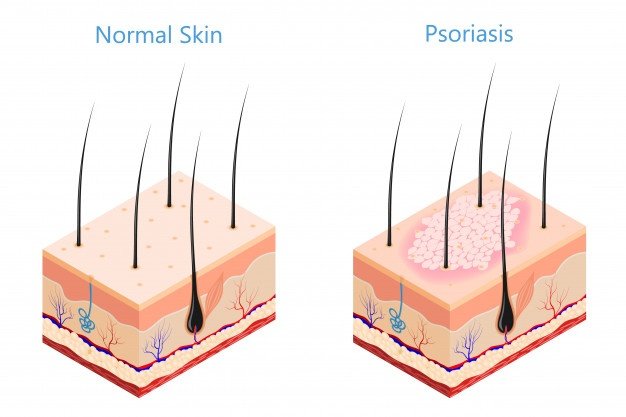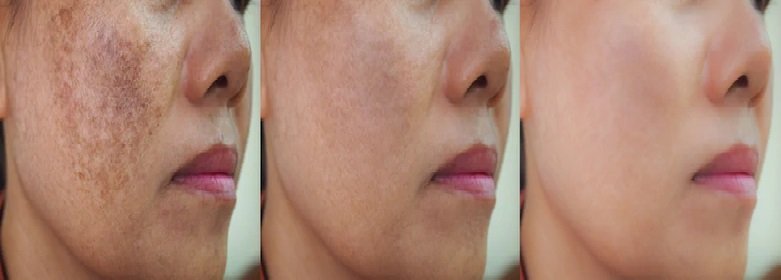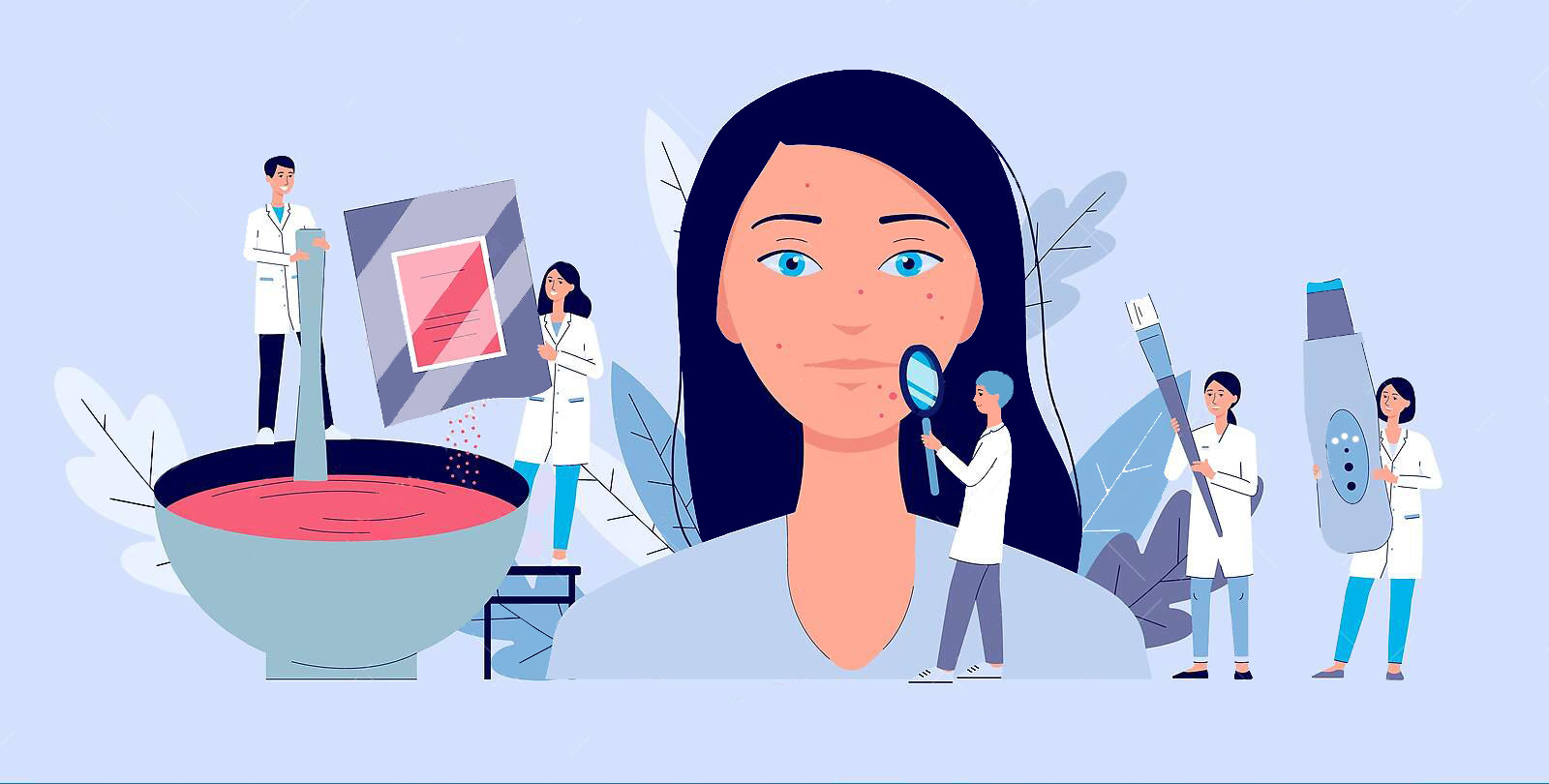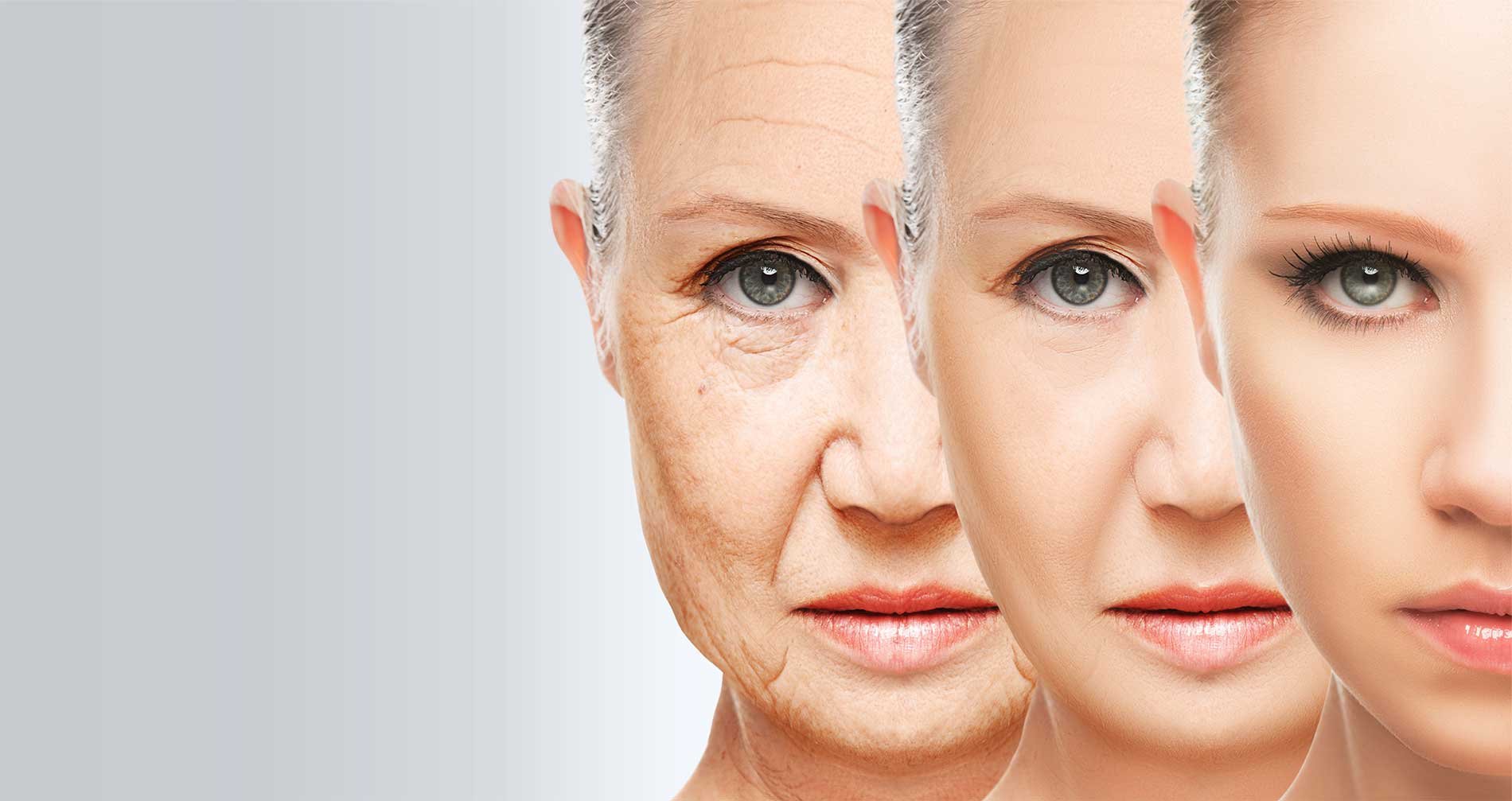Overview
Thyroid disorders can lead to various skin problems, including itchiness. Hypothyroidism, a condition where the thyroid gland does not produce enough hormones, can cause the skin to become dry and itchy. This is due to the slowed metabolism which reduces sweating, leading to dry, flaky, and itchy skin. On the other hand, hyperthyroidism, where the thyroid gland produces excessive hormones, can also cause itchy skin due to increased blood flow to the skin.
Statistics show 20% with hypothyroidism and 5% with hyperthyroidism experience itchy skin. Uncover the intricate link between thyroid health and skin symptoms.
Note: If you're experiencing itchy skin, see a dermatologist to determine the underlying cause and receive appropriate treatment. They may include medication, hormone replacement therapy, or self-care strategies.
By better understanding the connection between the thyroid and itchy skin, you can better understand how to identify and address the underlying cause.
Are you wondering if your itchy skin could be caused by an underlying thyroid condition? If yes?
Let's learn below!
Take charge of your health and your life. Contact us today!
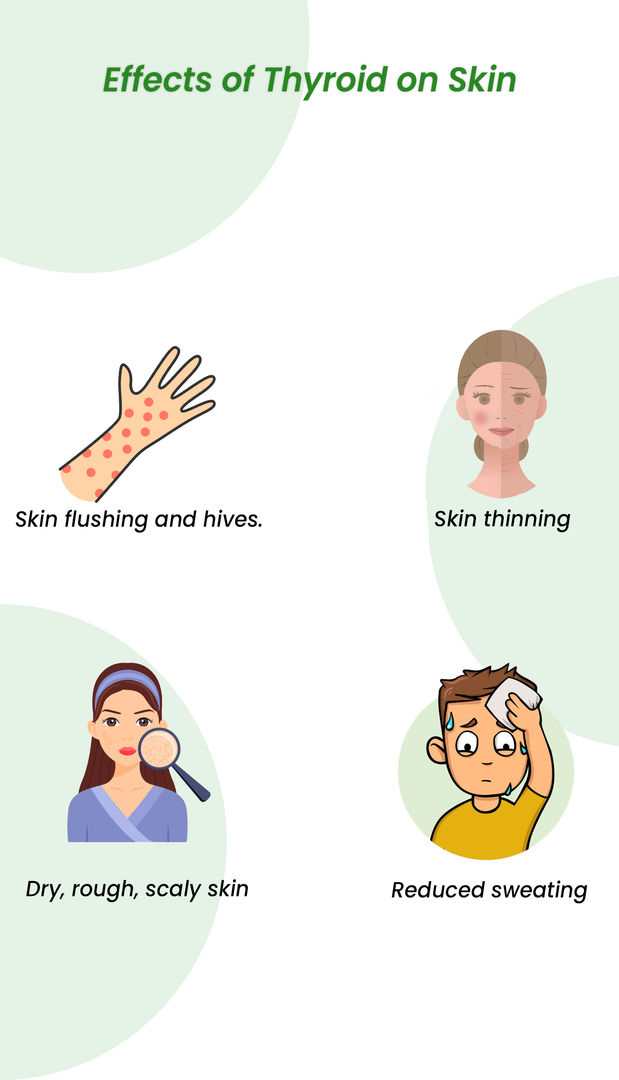
Can Thyroid Cause Itchy Skin?
Itchy skin can be caused by many different factors, thyroid dysfunction is just one of them.
Let’s talk about the connection between the thyroid and itchy skin.
Hypothyroidism:
- Occurs when the thyroid underproduces hormones.
- Low hormone levels can lead to dry, itchy skin.
- More noticeable in dry winter months.
Hyperthyroidism:
- Results from excessive thyroid hormone production.
- Causes itchy, sensitive skin.
- Accompanied by symptoms like weight loss, fatigue, stress, and anxiety.
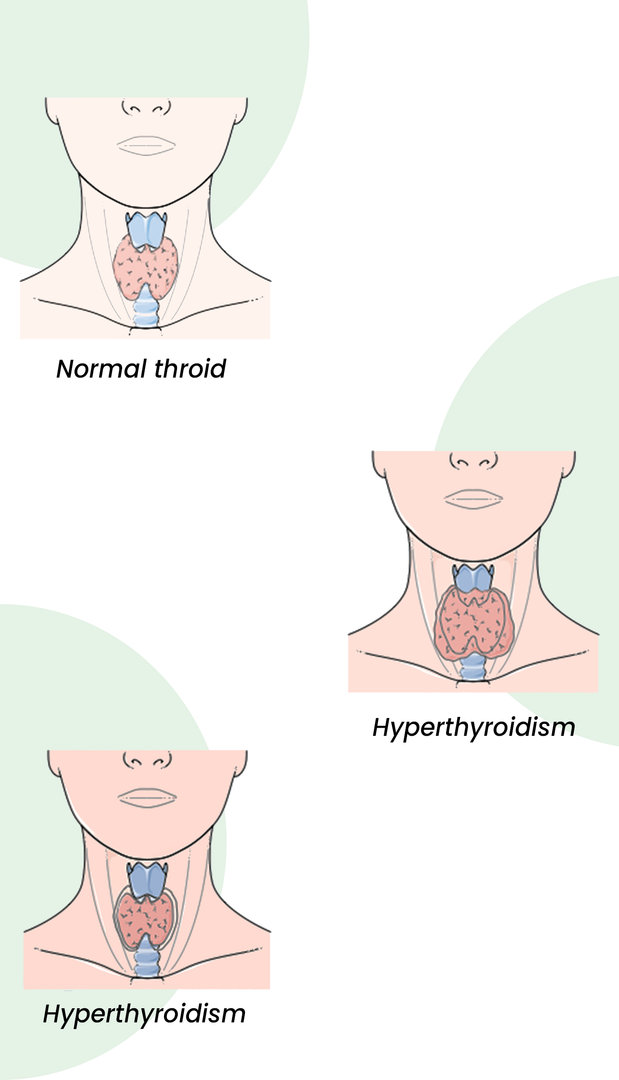
Take the first step to recovery. Get in touch with us for your treatment.
Itchy Skin in Different Types of Thyroid
The thyroid is a small, butterfly-shaped gland in the neck that produces hormones that regulate the body’s metabolism. When the thyroid is overactive or underactive, it can cause a variety of symptoms, including itchy skin.
But here is a twist there are two kinds of thyroid disorders that cause itchy skin. Because the levels of hormones can cause the skin to become sensitive, leading to itchy rashes.
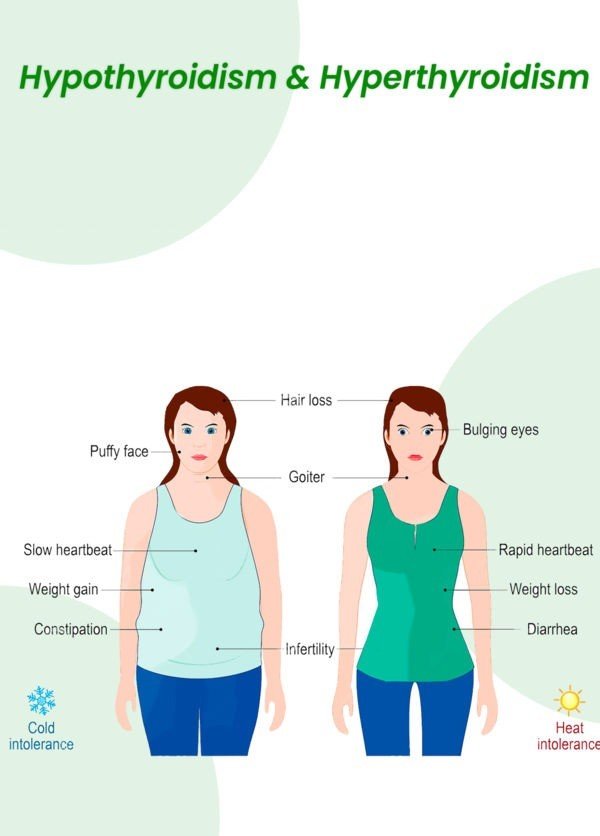
Thyroid disorders, like hyperthyroidism and hypothyroidism, disrupt skin health due to hormonal imbalances. The thyroid gland, regulating metabolism, also impacts skin well-being.
Types of Thyroid Disorders:
1. Hyperthyroidism:
- Excessive thyroid hormone production.
- Accelerates metabolism and bodily functions.
2. Hypothyroidism:
- Inadequate thyroid hormone production.
- Decelerates metabolism and bodily functions.
Let's see in detail below what is the difference between them.
Apart from hormonal imbalances, the immune system impacts skin health. Autoimmune thyroid disorders can result in skin rashes. It's vital to understand that itchy skin may have multiple causes. Consulting with an endocrinologist or dermatologist helps identify whether it's related to a thyroid disorder or another factor.
A study in The Journal of General Internal Medicine shows that 74% of hypothyroid patients report dry skin, and many say their skin issues worsen over time. Changes in the skin that cannot be attributed to allergies or new products could be indicative of a thyroid problem. In rare cases, Hashimoto's can sometimes develop an extreme form of itchy, dry skin, which can develop into urticaria or chronic hives. In a 1980s study, approx 12% of those with chronic urticaria also showed evidence of having Hashimoto's.
Please Note: The differences listed above are not exhaustive and may vary from person to person.
If you’ve been experiencing itchy skin, it could be a sign of an underlying thyroid issue. But what are the other symptoms you should be aware of? Let’s take a look!
Let's see!
What Are the Other Symptoms of Thyroid Problems Besides Itchy Skin?

Thyroid problems can cause a range of symptoms beyond itchy skin. The thyroid gland plays a vital role in regulating many body functions, so when it's not functioning properly, it can affect different parts of the body.
Here are some other symptoms that may indicate a thyroid problem:
- Fatigue: Feeling tired or sluggish, even with enough sleep, is a common symptom of an underactive thyroid.
- Weight changes: Both hypothyroidism (underactive thyroid) and hyperthyroidism (overactive thyroid) can cause weight changes. Hypothyroidism often leads to weight gain, while hyperthyroidism may result in weight loss.
- Mood changes: Thyroid problems can affect mood and cause symptoms like depression, anxiety, irritability, and nervousness.
- Hair and skin changes: Thyroid problems can lead to changes in hair and skin, including dryness, thinning hair, hair loss, and brittle nails.
- Digestive issues: Hypothyroidism can cause constipation, while hyperthyroidism can lead to diarrhea or more frequent bowel movements.
- Menstrual irregularities: Thyroid problems can also affect menstrual cycles, causing heavy or irregular periods.
- Muscle weakness and pain: Hypothyroidism can cause muscle weakness, aches, and stiffness.
- Heart problems: Both hyperthyroidism and hypothyroidism can lead to heart problems like a fast or irregular heartbeat, high blood pressure, or heart palpitations.
It's important to note that many of these symptoms can also be caused by other conditions, so it's important to talk to a doctor if you're experiencing any persistent or concerning symptoms.
Do you suffer from itchy skin caused by thyroid disorders at night?!
Unfortunately, this is a common symptom for those who suffer from a thyroid disorder, and it can be especially frustrating at night.
So why does this happen?
Thyroid and Itching at Night
Thyroid disorders, causing itchy skin at night, result from hormonal imbalances affecting skin health, alongside dryness and inflammation.
In hypothyroidism, insufficient thyroid hormone leads to dry, scaly skin prone to itching. Night exacerbates dryness due to increased moisture loss.
Hormonal imbalances and autoimmune thyroid disorders like Hashimoto's may trigger skin rashes, worsened by nightly inflammation. Reduced blood flow, shifts in skin bacteria, and medications further contribute to nocturnal itching in thyroid disorders. Antithyroid drugs, for instance, may induce skin rashes, intensifying discomfort at night.
Note: If you are experiencing persistent itching or other skin-related symptoms, especially if you have a known thyroid disorder.
Discovering the root cause of itchy skin can be challenging. Don't let itchy skin get in the way of your life.
Let's see a few tests below given!
Diagnosis of Thyroid Disorders for Itchy Skin
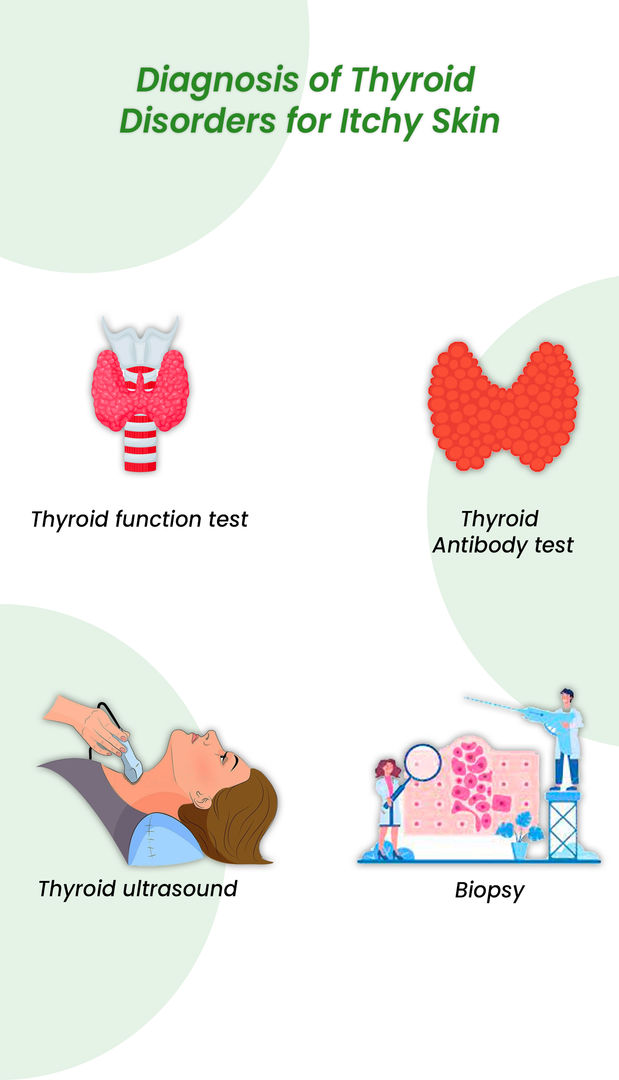
When it comes to diagnosing thyroid disorders that may be causing itchy skin, there are several tests that may be used to get a clear picture of what's happening in the body.
Here are some of the most common tests used in the diagnosis of thyroid disorders:
Thyroid Function Tests:
- Measure T3, T4, and TSH levels in the blood.
- Abnormal hormone levels may indicate a thyroid disorder contributing to itchy skin.
Thyroid Antibody Tests:
- Determine if the thyroid disorder is autoimmune.
- Elevated thyroid antibody levels signal an immune system attack on the thyroid.
Thyroid Ultrasound:
- Evaluate thyroid gland size, shape, and detect abnormalities.
- Identifies nodules that may cause thyroid dysfunction.
Biopsy:
- Further evaluates nodules or abnormalities detected in a thyroid ultrasound.
- Determines if nodules are cancerous or benign.
Skin Biopsy:
- If itchy skin is the primary concern.
- Rules out other causes like eczema, psoriasis, or fungal infections.
Overall, a combination of these tests may be used to diagnose thyroid disorders that may be contributing to itchy skin.
Overall, itchy skin can be a frustrating symptom of thyroid disorders, but it can often be managed with proper treatment and self-care measures.
Let's learn below!
Your well-being is our priority - call us to book your appointment today.
Thyroid Itchy Skin Treatment
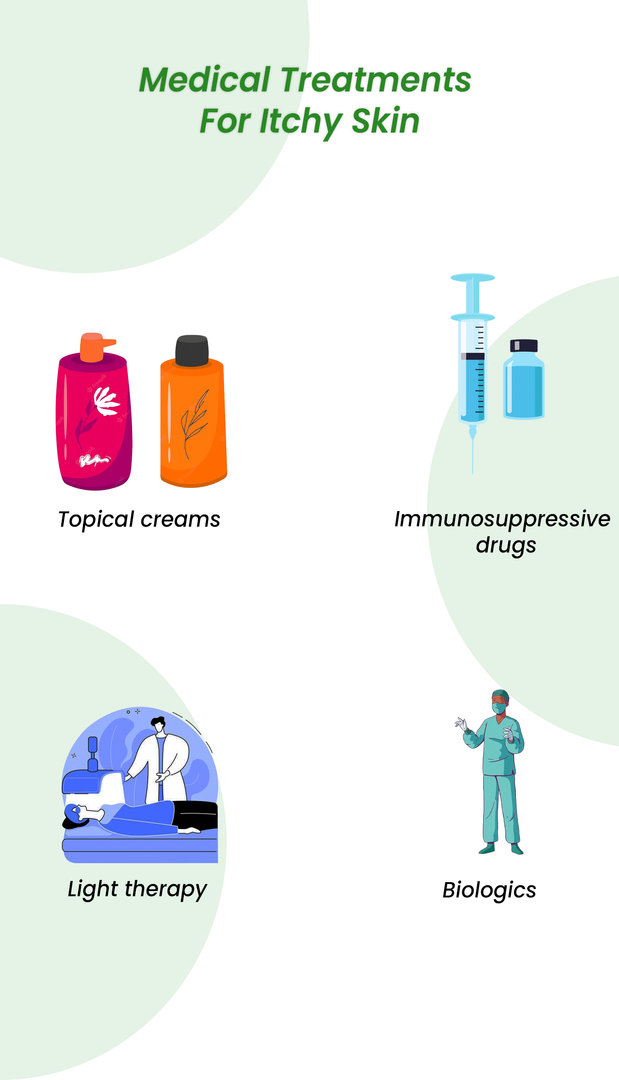
Itchy skin can be a common symptom associated with thyroid conditions, particularly hypothyroidism. Medical treatment for itchy skin related to thyroid disorders may vary depending on the underlying condition and severity of the symptoms.
Here are some medical treatments that may be recommended:
- Prescription antihistamines: Your doctor may prescribe stronger antihistamines to relieve itching caused by allergies or skin conditions.
- Corticosteroids: Corticosteroids can help reduce inflammation and relieve itching. They are available in topical creams, oral tablets, and injectable forms.
- Topical creams or ointments: Your doctor may prescribe topical creams or ointments containing ingredients like hydrocortisone, coal tar, or calcineurin inhibitors to relieve itching and reduce inflammation.
- Immunosuppressive drugs: Immunosuppressive drugs like cyclosporine or methotrexate may be prescribed for severe itching caused by autoimmune skin conditions.
- Light therapy: Light therapy, also known as phototherapy, involves exposing the skin to ultraviolet light to reduce itching and inflammation.
- Biologics: Biologics are a type of medication that targets specific proteins in the body to reduce inflammation and relieve symptoms. They may be prescribed for severe itching caused by autoimmune skin conditions.
Please Note: It's important to discuss any medical treatments with your doctor and follow their advice. They may also recommend lifestyle changes and self-care measures to manage itchy skin related to thyroid disorders.
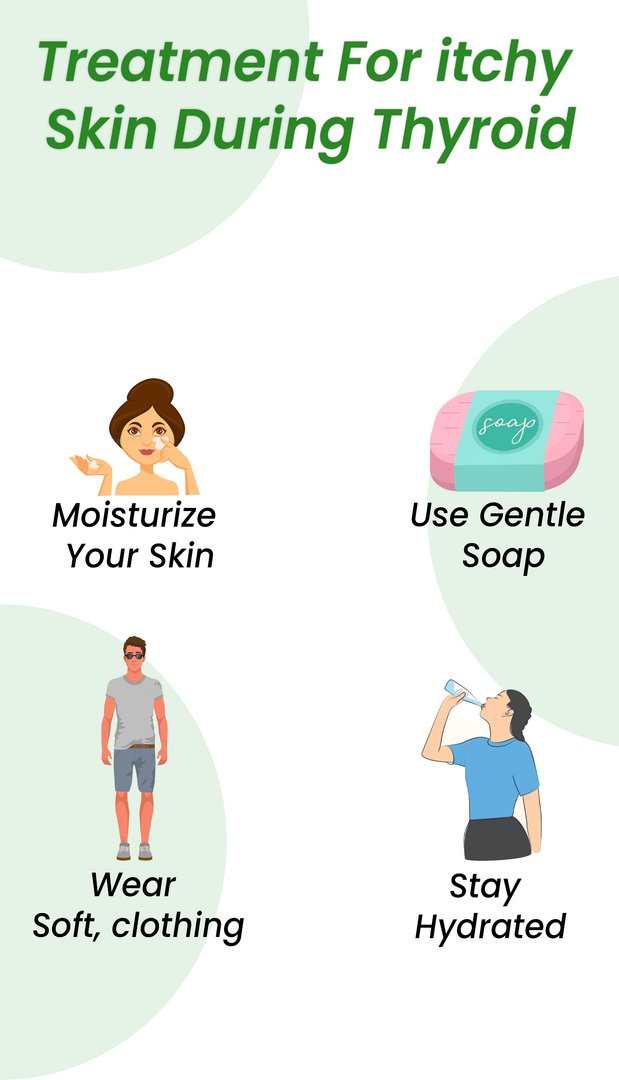
Here are some tips that may help relieve itchy skin during thyroid treatment:
Manage your thyroid disorder: Follow your doctor's prescribed treatment plan for your thyroid disorder. This may include taking medication, dietary changes, and managing stress levels.
• Moisturize regularly: Apply fragrance-free cream after showering to hydrate and prevent dryness.
• Gentle soap: Use mild, fragrance-free soap to avoid irritation.
• Breathable clothes: Wear loose, soft clothing made from natural fibers like cotton.
• Stay hydrated: Drink plenty of water to keep skin healthy.
• Healthy diet: Eat fruits and vegetables for vitamins and minerals that benefit skin health.
• See your doctor: Consult your doctor if itching persists or becomes severe.
To manage itchy skin at home, consider the following self-care strategies:
- Use a humidifier in your home to maintain skin moisture.
- Apply hypoallergenic moisturizers after showering to lock in hydration.
- Wear loose-fitting clothing made of natural fibers to reduce skin irritation.
Please Note: These tips may help relieve itchy skin, but they do not address the underlying thyroid condition causing the symptom. Therefore, it's essential to continue following your thyroid treatment plan as prescribed by your doctor.
Looking for relief from itchy skin? Here are some tips to help you prevent itchy skin due to your thyroid!
How to Prevent Itchy Skin in the Thyroid?
Preventing itchy skin in the thyroid involves taking measures to manage the underlying thyroid disorder and maintaining healthy skin.
Here are some tips to prevent itchy skin in the thyroid:
- Avoid hot showers or baths: Hot water can strip your skin of natural oils and exacerbate dryness, leading to itchiness. Take short, lukewarm showers or baths instead.
- Avoid scratching: Although it may be tempting, scratching can further irritate your skin and cause damage. Try using a cool compress or applying a topical cream to relieve itching.
- Manage stress: Stress can worsen skin conditions and cause itching. Practice relaxation techniques like deep breathing, yoga, or meditation to manage stress levels.
If you are suffering from thyroid dysfunction and itchy skin, it is important to understand the potential consequences of leaving these conditions untreated. Read on to learn more about why it is important to seek medical attention for thyroid dysfunction and itchy skin.
Take charge of your health with the best treatment. Book your consultation now.
What Happens if Thyroid Dysfunction and Itchy Skin are Left Untreated?
If thyroid dysfunction and itchy skin are left untreated, they can lead to a range of complications. Here are some of the potential consequences:
Skin Damage:
- Chronic itching may lead to redness, inflammation, and scarring.
Thyroid Storm (Hyperthyroidism):
- Rare, life-threatening condition if hyperthyroidism goes untreated.
- Symptoms include fever, rapid heart rate, and confusion.
Heart Problems:
- Both hyperthyroidism and hypothyroidism can cause:
- High blood pressure
- Heart palpitations
- Increased risk of heart disease.
Mental Health Issues:
- Thyroid dysfunction can cause or worsen:
- Depression
- Anxiety
- Mood swings.
Weight Changes:
- Untreated thyroid dysfunction can lead to:
- Weight gain or loss.
Infertility:
- Affects fertility in both men and women.
- Untreated hypothyroidism increases the risk of miscarriage and pregnancy complications.
Thyroid Cancer Risk:
- In rare cases, untreated thyroid dysfunction can elevate the risk of thyroid cancer..
References:
https://www.aad.org/public/diseases/a-z/thyroid-disease-skin-changes


